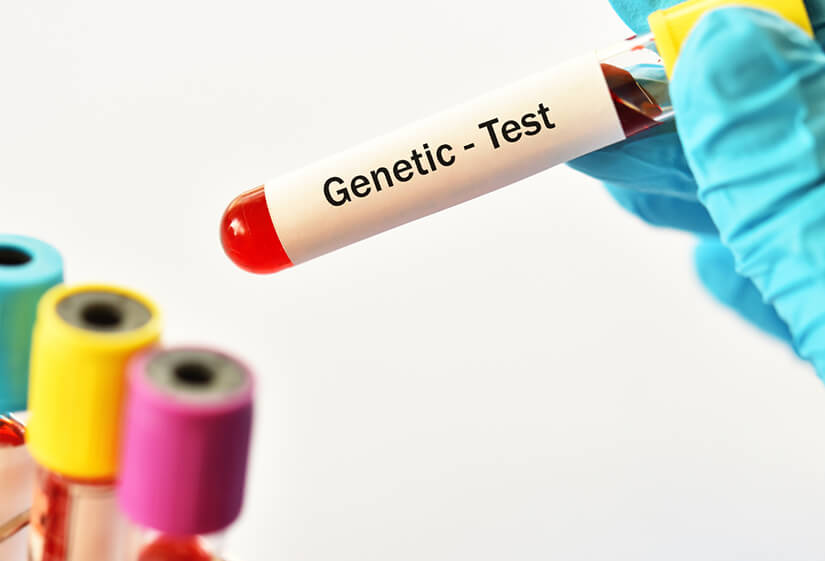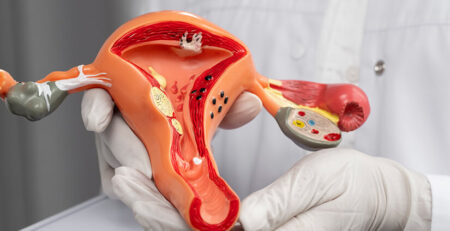Preimplantation Genetic Testing: Decoding the Future of Your Family’s Health
Isn’t it best to start the journey to parenthood with the power to make informed choices about your future child’s health, even before they are conceived? Yes, it is possible!
In the ever-evolving field of reproductive medicine, this is not just a fantasy but a reality, thanks to Preimplantation Genetic Testing (PGT). If you are considering IVF treatment, understanding the nuances of genetic testing can be a game-changer in your journey towards a healthy family.
Let’s start here!
What is Preimplantation Genetic Testing?
Preimplantation Genetic Testing (PGT) is a sophisticated technique used in conjunction with IVF treatment to screen embryos for genetic abnormalities before they are transferred to the uterus. This cutting-edge technology allows specialists to identify and select embryos that are free from specific genetic disorders, significantly increasing the chances of a successful pregnancy and the birth of a healthy baby.
PGT is particularly beneficial for couples with a known risk of passing on genetic disorders, those experiencing recurrent miscarriages, or women of advanced maternal age. By ensuring that only genetically healthy embryos are implanted, PGT helps to reduce the emotional, physical, and financial toll of multiple IVF cycles.
How Does PGT Work?
PGT is a multi-step process that begins with the IVF treatment itself. After fertilisation, the embryos are cultured for about 5-6 days until they reach the blastocyst stage. At this point, a few cells are carefully biopsied from each embryo, and the genetic material is analysed in a laboratory.
There are several types of PGT, each serving a different purpose:
- PGT-A (Preimplantation Genetic Testing for Aneuploidy): This test screens for chromosomal abnormalities, such as an extra or missing chromosome, which can lead to conditions like Down syndrome.
- PGT-M (Preimplantation Genetic Testing for Monogenic Disorders): This test is used when one or both parents are carriers of a specific genetic disorder, such as cystic fibrosis or sickle cell anaemia.
- PGT-SR (Preimplantation Genetic Testing for Structural Rearrangements): This test detects structural rearrangements of chromosomes, such as translocations or inversions, which can affect the viability of the embryo.
By selecting only embryos that are free from these genetic abnormalities, the chances of a successful pregnancy are significantly enhanced, and the likelihood of a healthy baby is increased.

The Impact of Genetic Testing on IVF Success Rates
Genetic testing has revolutionised the landscape of IVF treatment. Studies have shown that PGT can improve the success rates of IVF by up to 70%. This is because genetic abnormalities are one of the leading causes of IVF failure and miscarriage. By identifying and transferring only healthy embryos, the likelihood of a successful pregnancy is greatly increased, reducing the number of IVF cycles needed and the associated emotional and financial strain.
Moreover, PGT also allows for single embryo transfer (SET), which reduces the risks associated with multiple pregnancies, such as preterm birth and low birth weight. This approach is safer for both the mother and the baby, aligning with the growing trend towards personalized and patient-centred fertility treatments.
Ethical Considerations and Limitations
While the benefits of genetic testing are undeniable, it’s important to consider the ethical implications and limitations of this technology. The ability to select embryos based on genetic criteria raises questions about the potential for “designer babies,” where parents might choose embryos based on non-medical traits such as gender, eye colour, or intelligence.
However, it’s important to note that PGT is currently limited to identifying and preventing serious genetic disorders and chromosomal abnormalities. The technology is not designed or intended for selecting superficial traits. Moreover, the process of embryo selection is highly regulated, with strict ethical guidelines in place to ensure that it is used responsibly.
Another limitation of PGT is that it is not 100% accurate. While the testing is highly advanced, there is still a small chance of false positives or negatives. Additionally, not all genetic disorders can be detected through PGT, so there remains a risk of undiagnosed conditions.
The Role of the Best IVF Doctor in Delhi
Choosing the right IVF specialist is crucial in ensuring the success of your treatment. The best IVF doctor in Delhi will not only have extensive experience in fertility treatments but also be well-versed in the latest advancements in genetic testing. They will guide you through the complexities of PGT, helping you understand the risks, benefits, and potential outcomes.
Dr. Rhythm Gupta, a renowned IVF specialist in New Delhi, is at the forefront of this field. With her deep understanding of reproductive medicine and a commitment to patient-centred care, Dr Gupta offers a personalised approach to fertility treatments. She believes in empowering her patients with the knowledge and tools needed to make informed decisions about their fertility journey.
Is Genetic Testing Right for You?
If you are considering IVF treatment, genetic testing is an option worth exploring. It offers a level of precision and control that was unimaginable just a few decades ago, providing hope to couples who might otherwise face significant challenges in their journey to parenthood. However, it’s important to consult with your IVF specialist to determine whether PGT is appropriate for your specific situation.
Every couple’s journey is unique, and what works for one may not be suitable for another. A thorough evaluation by your specialist will help determine whether PGT could enhance your chances of a successful pregnancy and a healthy baby.
Your Path to a Healthy Family
In the ever-evolving world of reproductive medicine, genetic testing represents a significant leap forward. It offers hope, reduces uncertainty, and increases the chances of a successful pregnancy. However, like any medical intervention, it is not without its challenges and limitations.
By working with a knowledgeable and experienced IVF specialist like Dr. Rhythm Gupta, you can navigate these complexities with confidence. Dr. Gupta is dedicated to helping her patients achieve their dreams of parenthood through personalised care and the latest advancements in fertility treatments.
Take the First Step Towards Parenthood Today!
If you are considering IVF treatment and want to explore the benefits of genetic testing, book a consultation with Dr. Rhythm Gupta, one of the best IVF doctors in Delhi. With her expertise and compassionate approach, you can take the first step towards building the healthy family you’ve always dreamed of.
While Preimplantation Genetic Testing (PGT) is generally considered safe, it does carry some risks. One of the primary concerns is the possibility of damage to the embryo during the biopsy process, where cells are removed for genetic analysis. Although rare, this can affect the embryo’s development. Another risk is the potential for false-positive or false-negative results, which could lead to the selection of embryos that either have undetected genetic abnormalities or are mistakenly identified as abnormal. Additionally, PGT can add emotional and financial stress to the IVF process, as the testing involves additional costs and waiting times for results.
Preimplantation Genetic Testing (PGT) is highly advanced but does not detect all genetic disorders. PGT is most effective in identifying specific known genetic mutations, chromosomal abnormalities, and structural rearrangements. However, it may not detect rare or less understood genetic conditions. Additionally, some disorders arise from de novo mutations, which are new genetic changes that occur after fertilisation and are not inherited from the parents. These mutations may not be detected by PGT, so there is still a small risk that an embryo may carry a genetic condition despite testing.
PGT can significantly improve IVF success rates in women of advanced maternal age. As women age, the likelihood of chromosomal abnormalities in their eggs increases, leading to a higher risk of miscarriage and failed IVF cycles. By using PGT to screen embryos for these abnormalities, only the healthiest embryos are selected for transfer, which increases the chances of a successful pregnancy. However, it’s important to note that while PGT can enhance success rates, it does not entirely eliminate the challenges associated with advanced maternal age, such as reduced ovarian reserve and egg quality.
Preimplantation Genetic Testing (PGT) is not necessarily recommended for all couples undergoing IVF. It is most beneficial for couples with specific risk factors, such as a history of genetic disorders, recurrent miscarriages, or previous IVF failures. Couples where one or both partners are known carriers of genetic conditions may also benefit from PGT. However, for couples without these risk factors, PGT may not be necessary. The decision to use PGT should be made in consultation with an experienced IVF specialist, who can assess the couple’s unique situation and recommend the most appropriate course of action.












